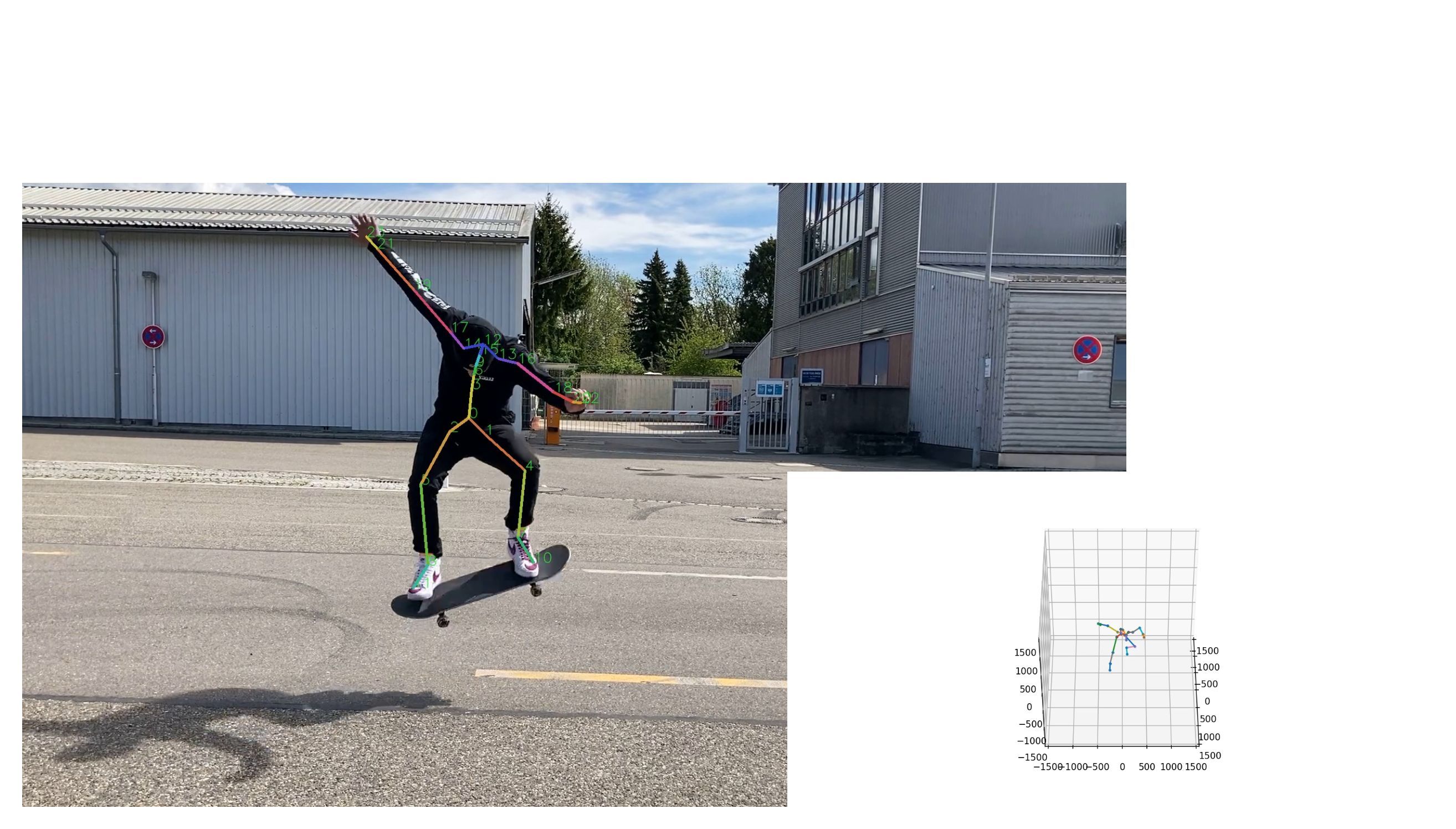
State innovation award for Konstanz start-up
The company Subsequent GmbH was inspired by a doctoral research project at the University of Konstanz. Subsequent's systems enable automated skeletal motion analysis in a wide variety of domains including sports, home fitness and health.
Subsequent GmbH is one of the winners of the state award "Innovationspreis des Landes Baden-Württemberg – Dr. Rudolf-Eberle-Preis". On 22 November 2022, Minister of Economics Nicole Hoffmeister-Kraut presented the award, which recognizes outstanding developments and applications of new technologies, at the "Haus der Wirtschaft" in Stuttgart. Managing director Manuel Stein is delighted about the award: "We are proud and happy and thank the University of Konstanz in particular for the great support provided on our way."
The award is endowed with a total of 50,000 euros and is granted annually to Baden-Württemberg's small and medium-sized companies from industry, trade and technological services.
University as an incubator
What is now a start-up began at the University of Konstanz. After successfully completing his bachelor's and master's degrees there, Manuel Stein started working on the automatic analysis of football matches as a doctoral researcher. His idea was to take technical-tactical analysis in football matches to a new level by processing detailed motion data. While working to visualize the patterns of a football game, show passing opportunities, and run alternative game scenarios, he also researched methods of automatically visualizing analytics during games.
"During my doctorate, I repeatedly talked with various companies in order to obtain further data material, but their conditions were not acceptable for a researcher. I would have had to renounce all claims to the resulting software and its source code," says Manuel Stein. "So my desire to start my own business grew."
One year of start-up assistance
Together with Philip Zimmermann and Marc Lüttecke, two other graduates of the Department of Computer and Information Science at the University of Konstanz, Stein acquired an EXIST start-up grant from the German Federal Ministry for Economic Affairs and Energy (BMWi) immediately after completing his doctorate. Professor Daniel Keim, a professor of data analysis and visualization at the University of Konstanz, mentored the project. From July 2020 to June 2021, the start-up project "Subsequent" was funded with more than 129,000 euros. In February 2021, Subsequent GmbH was founded.
Today, the start-up offers innovative solutions for collecting 3D skeletal and position data from simple, that is, also from non-professional video recordings. These solutions are very fast – available in real-time – and work even with poor quality footage. Now they can analyze smartphone videos, too. The business idea was the product of Stein's doctoral research, and his vision continues to develop it even further, while Subsequent's current software was developed in great part by AI expert Philip Zimmermann.
The Konstanz software company's customers include not only the Austrian national football team and German Bundesliga clubs, but also representatives of other sports (e.g. slalom skiing, golf and skating) and activities (e.g. home fitness). TV stations have also started to express interest in real-time analysis. "For us, this means that we have been in the black from day one and can fund ourselves", Stein emphasizes.
Staying true to the roots
A cooperation agreement with the University of Konstanz makes it possible for the start-up to use rooms and IT infrastructure at the university for a set period of time. "We owe a lot to the University of Konstanz and are happy to give something back", say Stein. "For example, we worked with Markus Gruber, professor of sport science, and his research team at the university to successfully apply for funding through the BMBF project SMARTGAIT".
The SMARTGAIT project aims to provide digital motion analysis in the field of medicine. In cases where neurological diseases (e.g. strokes, Parkinson's disease, etc.) negatively affect a person's gait, the analysis of this gait could provide physicians, therapists and patients with information about where the impairments lie and how improvements could potentially be attained. Until now, however, such motion analysis systems have been very cost intensive, have required a great deal of time for preparations, and could only be operated by specially trained staff.
Since August of this year, sport scientists at the University of Konstanz have been working with Subsequent to develop a system for medical staff that simplifies gait analysis. The system provides AI-based data about individual bone positions of persons as they move. For this, each bone is numbered and given a different colour. SMARTGAIT wants be able to also use smartphone video recordings to get this real-time skeletal data. "Physicians have praised our approaches for the fact that patients no longer would need to be brought to the system, but that the system would come to the patient", Stein says. The project will receive a total of 430,000 euros in funding until July 2024, of which 69 % comes from the Federal Ministry of Education and Research (BMBF).
At the moment, additional joint research projects with the University of Konstanz are currently under review. Subsequent is very active in this regard, and the state innovation award gives the team even greater momentum.
Key facts:
- Start-up Subsequent GmbH (www.subsequent.ai) wins one of this year's state innovation awards.
- Managing director Manuel Stein completed his doctorate in the Department of Computer and Information Science at the University of Konstanz on the analysis of motion data in team sports.
- The founding team of Dr Manuel Stein, Philip Zimmermann and Marc Lüttecke, all graduates of the Department of Computer and Information Science at the University of Konstanz, acquired an EXIST start-up grant from the German Federal Ministry for Economic Affairs and Energy (BMWi).
Funding period: 1 July 2020 to 30 June 2021; funding amount: 129,300 euros. - The project SMARTGAIT, a collaboration between Subsequent GmbH and the University of Konstanz (Markus Gruber and the Training and Movement Science research team), is funded by the Federal Ministry of Education and Research (BMBF).
Funding period: August 2022 to July 2024; funding amount: 430,000 euros (69 % provided by BMBF).
